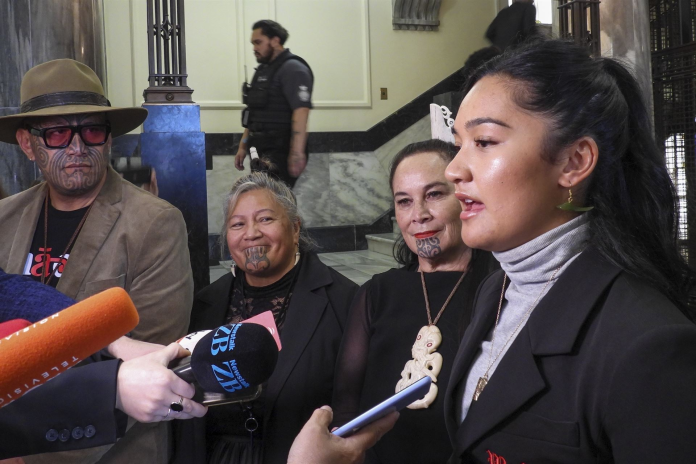New Zealand’s Parliament is set to vote on historic suspensions for three Māori lawmakers after a parliamentary committee ruled their performance of a protest haka in the chamber last year constituted contempt, AP News reports.
The move, recommended by a cross-party committee, would impose the harshest penalties ever levied against sitting MPs, sparking accusations of cultural insensitivity and political bias. Speaker Gerry Brownlee permitted unlimited debate ahead of Tuesday’s vote, acknowledging the case’s gravity.
The incident occurred during debates on the Principles of the Treaty of Waitangi Bill, a contentious proposal to redefine New Zealand’s 1840 founding document between Māori chiefs and the British Crown. Te Pāti Māori MPs Hana-Rāwhiti Maipi-Clarke, Rawiri Waititi, and Debbie Ngarewa-Packer performed the haka—a traditional Māori challenge of cultural significance—while approaching government benches during a vote.
The committee deemed their actions “intimidating,” though insisted the punishment targeted their conduct, not the haka itself.
The bill, which critics argued would erase decades of Indigenous rights progress, was defeated in April. However, the government bloc pursued sanctions, alleging procedural breaches. The committee recommended a seven-day suspension for Maipi-Clarke and 21 days for Waititi and Ngarewa-Packer. Moreover, suspended MPs forfeit pay during their bans.
Te Pāti Māori leaders boycotted the committee hearings, claiming the process disregarded Māori protocols and fairness, with MP Mariameno Kapa-Kingi denouncing the move as an attack on Indigenous identity.
The process was grossly unjust, unfair, and unwarranted, resulting in an extreme sanction. This was not about process, this became personal.
The Treaty of Waitangi, signed in 1840, was repeatedly violated by the Crown, leading to widespread Māori dispossession. Recent decades saw efforts to honour its principles through land settlements and cultural revitalisation, policies the defeated bill sought to dismantle.
